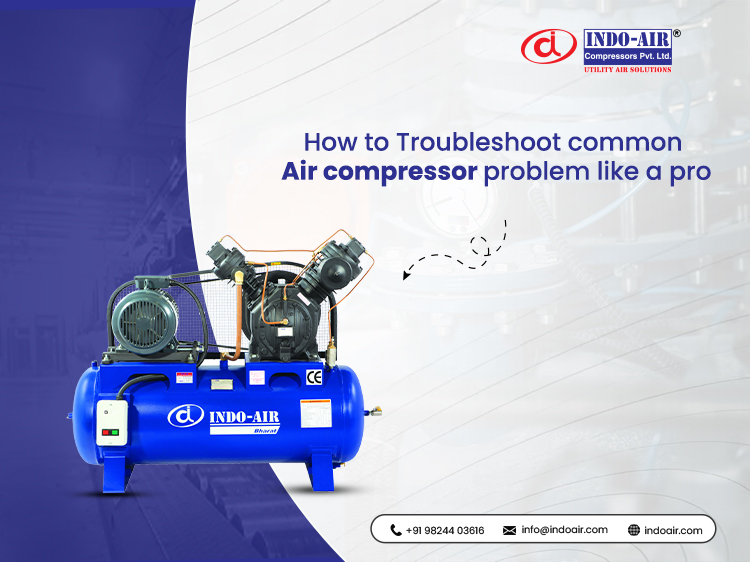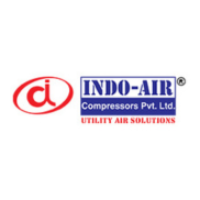How To Troubleshoot Common Air Compressor Problems Like A Pro

An air compressor is an essential tool in various industries, from manufacturing to automotive repair. However, even the most reliable machines can face performance issues. Knowing how to troubleshoot these common air compressor problems like a pro can save time, reduce downtime, and extend the equipment's lifespan. The problem may be due to something simple like overheating, or it may be more complex than that. In this guide, we will explore the most frequent air compressor issues, their causes, and practical solutions to keep air compressor components running smoothly. Whether you're a technician or a business owner, these tips will help you maintain efficiency and prevent costly repairs. Let's take a look in depth!
Common problems of air compressors and how to fix them
Air compressors are essential machines for various industries, but like any equipment, they can cause problems. Knowing the common issues and how to troubleshoot them will save time, money, and frustration. Here’s a detailed guide to the most frequent air compressor problems and their solutions.
1. Air compressor failure: Why won’t it start?
One of the most frustrating issues is when your air compressor fails to start. This could be due to:
Power supply issues: Ensure the power cord is properly connected and the switch is activated. Check the circuit breaker and reset it if needed.
Low air pressure: If the cut-in pressure is too high, the compressor may not start. Adjust the pressure settings accordingly.
Low oil levels: Insufficient oil can prevent the compressor from running. Regularly check and refill air compressor components to avoid this issue.
The compressor won’t stop running?
If your compressor keeps running without stopping, it could show:
Faulty pressure release valve: A defective valve prevents the compressor from stopping. Replace it to restore normal function.
Broken power switch: If the power switch isn’t sending the correct signals, replacing it should fix the problem.
Not generating enough air pressure?
If the India compressor is running but not delivering enough pressure, possible causes include:
Faulty air intake pump: A malfunctioning intake pump can reduce air output. Inspect and replace it if needed.
Leaking gaskets: If the gasket between the high- and low-pressure compartments is worn out, replacing it will improve performance.
2. Compressor runs but then slows down
If your air compressor starts strong but quickly loses power, it might be due to:
Shared power source: Compressors should have a dedicated power supply. Avoid connecting them to circuits shared with other high-powered machines.
Faulty unloader valve: To test this, drain the tank, release all air, and restart the machine. If it still struggles, replace the valve.
Capacity overload: If your compressor isn't powerful enough for its application, consider upgrading to a higher-capacity model.
3. Air leaks: Is your air compressor losing pressure?
A sudden pressure drop usually signals an air leak. Here’s how to find and fix it:
Listen for hissing sounds: Try to locate the leak by sound.
Soap test: Apply liquid soap to the couplers and power switch—bubbles will reveal the leak.
Check the tank valve: If pressure drops when the compressor is off, inspect and replace the check valve if necessary.
4. Pressure and flow issues: Too much or too little air?
Sometimes, compressors build up either too much or too little pressure. Possible reasons include:
Blocked intake filters: Clean or replace them to improve airflow.
Loose couplers: A poor connection can restrict airflow; tighten or replace couplers as needed.
Pressure gauge misalignment: Ensure the gauge is set to the correct PSI level.
Worn piston seals or valves: Inspect air compressor components and replace them if they seem damaged.
5. Unusual noises or vibrations
Loud noises or excessive vibrations show internal issues. Common causes include:
Loose components: Tighten bolts, belts, or pulleys.
Crankcase problems: Inspect the crankcase for defects or low oil levels.
Misaligned pistons: If pistons hit the valve plate, adjust them accordingly.
Improper mounting: Securely fasten the India compressor and use vibration pads if needed.
6. Oil problems: Is your air compressor leaking or burning oil?
Oil-related issues can severely damage your air compressor. Watch out for:
Rapid oil consumption: This may be due to intake blockages, worn piston rings, or incorrect oil consistency.
Aerosolized oil: If oil contaminates seals or plastic parts, it can cause cracking and brittleness. Prevent this by using the correct oil type recommended by the India compressor and avoiding overfilling.
7. Overheating: Why is your compressor ejecting hot air?
If your air compressor releases excessively hot air, it may be at risk of overheating. Common causes include:
Dirt build-up: Clean the interior air compressor components regularly.
Poor ventilation: Ensure the India compressor is in a well-ventilated area.
Worn gaskets and valves: Replace any deteriorated parts.
Restricted air intake: Keep intake vents free of waste to maintain optimal airflow.
Preventive maintenance tips
To keep your air compressor in optimal condition, follow these maintenance tips:
Perform routine inspections of air compressor components.
Clean or replace air filters regularly.
Lubricate moving parts as needed.
Monitor pressure levels to prevent overloading.
Drain moisture from the tank after each use.
Check for and fix leaks before they become major issues.
Keep the air compressor environment clean and dust-free.
Follow the India compressor manufacturer’s maintenance schedule for long-term reliability.
Wrapping Up:
Troubleshooting common air compressor problems doesn't have to be complicated. By understanding the causes and executing these solutions, you can ensure the efficiency and longevity of your equipment. Regular maintenance and immediate repairs will not only prevent costly downtime but also improve the performance of your air compressor. If continuous issues arise, it's always best to consult a professional technician to keep your compressor running at peak efficiency. To know more information or tips contact www.indoair.com


